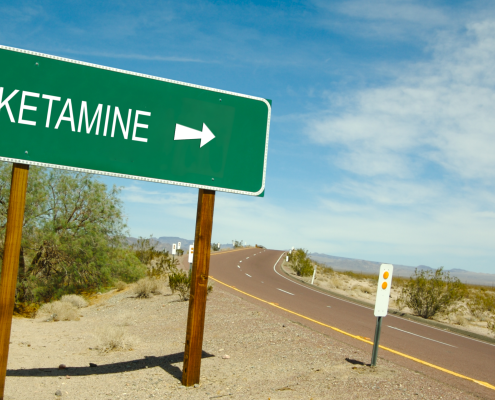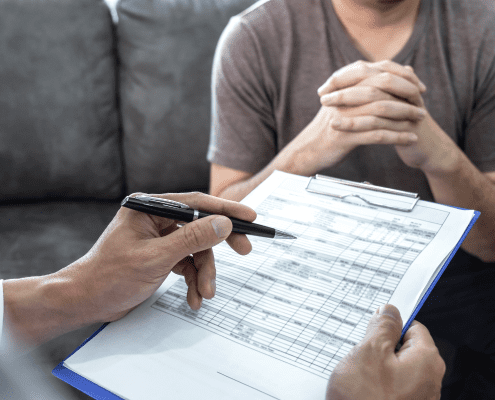Request An Appointment!
We’re here to make scheduling your appointment simple and stress-free. Whether you’re a new or existing patient, just fill out the form below, and our team will get back to you within 24-48 business hours to confirm your appointment or answer any questions. For immediate assistance, please feel free to call the clinic during regular business hours.
Manlove Brain + Body Health Blog
Read the latest from Dr. Manlove and the MBBH team covering topics such as psychiatry, treatment resistant depression, brain health, lifestyle changes, and more.

Medicare Increases Coverage of TMS Therapy for Depression
A recent change in Medicare coverage will now make transcranial…

How to Steer Clear of the Ketamine Wild West
Know the difference between a ketamine clinic and a ketamine…

How Medical Marijuana Affects Mental Health
Due to its relaxing effects, it is commonly assumed that cannabis…

Psychedelic Assisted Psychotherapy at Manlove Brain and Body Health
Manlove Brain and Body Health recently announced that they will…
 https://www.manlovehealth.com/wp-content/uploads/2023/06/vecteezy_happy-asian-woman-office-worker-feeling-excitement-raising_7389484_402-scaled.jpg
1249
2560
Dr. Stephen Manlove
https://www.manlovehealth.com/wp-content/uploads/2019/09/cropped-ml_secondary-logo-a_rgb-6.png
Dr. Stephen Manlove2023-06-05 10:37:302025-02-12 12:22:01Natural Ways to Heal Depression - 10 Lifestyle Tips
https://www.manlovehealth.com/wp-content/uploads/2023/06/vecteezy_happy-asian-woman-office-worker-feeling-excitement-raising_7389484_402-scaled.jpg
1249
2560
Dr. Stephen Manlove
https://www.manlovehealth.com/wp-content/uploads/2019/09/cropped-ml_secondary-logo-a_rgb-6.png
Dr. Stephen Manlove2023-06-05 10:37:302025-02-12 12:22:01Natural Ways to Heal Depression - 10 Lifestyle Tips https://www.manlovehealth.com/wp-content/uploads/2022/11/Improving-Brain-health-1160-×-1080-px-1160-×-800-px.png
800
1160
Dr. Stephen Manlove
https://www.manlovehealth.com/wp-content/uploads/2019/09/cropped-ml_secondary-logo-a_rgb-6.png
Dr. Stephen Manlove2023-04-06 12:05:152023-09-06 14:35:46Delusions, Delusion-Like Beliefs, and Conspiracy Theories
https://www.manlovehealth.com/wp-content/uploads/2022/11/Improving-Brain-health-1160-×-1080-px-1160-×-800-px.png
800
1160
Dr. Stephen Manlove
https://www.manlovehealth.com/wp-content/uploads/2019/09/cropped-ml_secondary-logo-a_rgb-6.png
Dr. Stephen Manlove2023-04-06 12:05:152023-09-06 14:35:46Delusions, Delusion-Like Beliefs, and Conspiracy Theories
How to Combat Seasonal Depression
In a recent blog, we outlined the differences between depression…

Am I Depressed? Know the Signs and Symptoms of Depression
The biggest question people want to be answered before going to see a psychiatrist is: Am I depressed? While no one wants to go through the hassle of making a doctor’s appointment for no reason, it’s always best to ask a mental health professional the answer to that question.
However, to help you determine if it’s time to seek help, The Washington Post recently posted a great article that shares How to know if it’s depression or just ‘normal’ sadness.

Screening Patients for Anxiety: Then What?
New recommendations from the US Preventive Services Task Force (USPSTF) gives busy primary physicians and their teams one more thing to implement and manage: anxiety screenings. While the recommendation that adults ages 64 and younger should be screened for anxiety is a major step toward improving mental health across the US, for many physicians, the question quickly becomes, ‘OK, screening will identify patients needing help; then what?’

